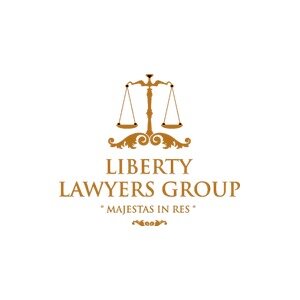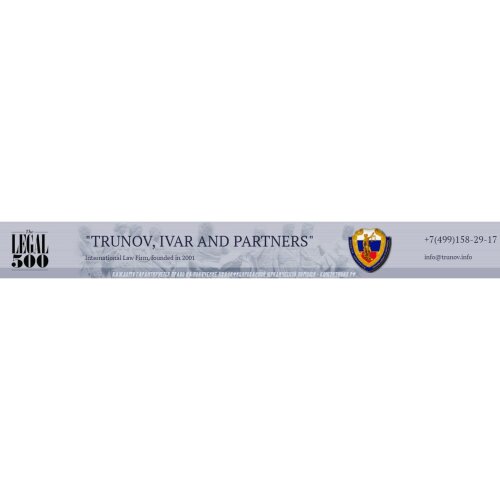Best State, Local, and Municipal Law Lawyers in Moscow
Share your needs with us, get contacted by law firms.
Free. Takes 2 min.
List of the best lawyers in Moscow, Russia
About State, Local, and Municipal Law in Moscow, Russia
State, Local, and Municipal Law in Moscow encompasses a wide array of legal frameworks that govern the city's administration, public policies, and the relationship between the government and its citizens. This area of law deals with issues that affect local governance, including zoning, public infrastructure, regulation of utilities, and municipal services. It is largely influenced by federal laws but allows room for city-specific regulations that cater to the unique needs of Moscow's urban environment.
Why You May Need a Lawyer
Legal assistance might be required in several scenarios under State, Local, and Municipal Law in Moscow. Common situations include real estate transactions, where zoning laws and property regulations are in question; disputes over municipal services like waste management or public transportation; business operations requiring compliance with local regulations; and cases involving administrative actions by city authorities. A lawyer can offer crucial guidance, ensuring that individuals and businesses navigate these complex legal landscapes effectively.
Local Laws Overview
Key aspects of local laws in Moscow include zoning regulations that delineate land use in the city, environmental laws that aim to protect natural resources, and building codes that ensure safety and compliance for structures. Additionally, Moscow has specific rules concerning the operation of businesses, street advertising, and public conduct within its jurisdiction. Engaging with these regulations requires an understanding of both the municipal statutes and their interplay with federal legislation.
Frequently Asked Questions
What is the role of the Moscow City Duma?
The Moscow City Duma is the legislative authority that enacts laws and regulations specific to Moscow. It plays a crucial role in shaping local governance and public policy.
Are there specific laws for property development in Moscow?
Yes, property development in Moscow is subject to rigorous zoning laws, building codes, and environmental regulations to ensure development is sustainable and in line with city planning objectives.
How do local tax laws in Moscow affect businesses?
Businesses in Moscow must comply with local tax laws, which include property taxes, business taxes, and other levies that are vital for municipal services and infrastructure funding.
What is the process for zoning variances in Moscow?
Zoning variances allow property use that deviates from existing zoning laws. The process involves applying to local authorities and may require public hearings and justification of the request.
How can residents address grievances with municipal services?
Residents can file complaints with appropriate municipal offices or utilize online platforms provided by the city government for lodging grievances and tracking resolution status.
What is the significance of municipal charters?
Municipal charters define the organization, powers, and functions of local government bodies. They act as a constitutional framework for city governance in Moscow.
Do local environmental laws in Moscow affect everyday activities?
Yes, these laws can impact activities like waste disposal, noise levels, and emissions, and require compliance from both residents and businesses to ensure a healthy urban environment.
How are public services regulated in Moscow?
Public services, including utilities, transportation, and public safety, are regulated to maintain quality standards and ensure accessibility to all residents, overseen by various government departments.
Can citizens participate in municipal decision-making?
Moscow encourages public participation through community meetings, public consultations, and feedback mechanisms, allowing citizens to have a voice in local governance issues.
What recourse do individuals have against administrative actions?
Individuals can challenge administrative actions through administrative courts or appeal to higher government bodies for reconsideration of decisions perceived as unjust or unlawful.
Additional Resources
Individuals seeking more information can refer to the Moscow City Hall for regulatory details, the Moscow City Duma for legislative updates, and various legal aid organizations that offer support and advice. Moscow's judicial portals also provide insights into law interpretations and past case decisions that can serve as reference points.
Next Steps
If you require legal assistance in State, Local, and Municipal Law in Moscow, it is advisable to consult with a lawyer specializing in this field. Initial consultations can help clarify your situation, set legal strategies, and ensure compliance with applicable laws. Consider reaching out to professional legal associations for recommendations on qualified lawyers or legal practitioners who can adequately represent your interests.
Lawzana helps you find the best lawyers and law firms in Moscow through a curated and pre-screened list of qualified legal professionals. Our platform offers rankings and detailed profiles of attorneys and law firms, allowing you to compare based on practice areas, including State, Local, and Municipal Law, experience, and client feedback.
Each profile includes a description of the firm's areas of practice, client reviews, team members and partners, year of establishment, spoken languages, office locations, contact information, social media presence, and any published articles or resources. Most firms on our platform speak English and are experienced in both local and international legal matters.
Get a quote from top-rated law firms in Moscow, Russia — quickly, securely, and without unnecessary hassle.
Disclaimer:
The information provided on this page is for general informational purposes only and does not constitute legal advice. While we strive to ensure the accuracy and relevance of the content, legal information may change over time, and interpretations of the law can vary. You should always consult with a qualified legal professional for advice specific to your situation.
We disclaim all liability for actions taken or not taken based on the content of this page. If you believe any information is incorrect or outdated, please contact us, and we will review and update it where appropriate.













